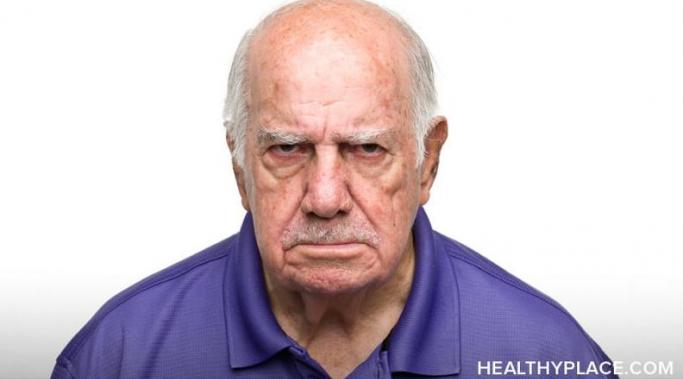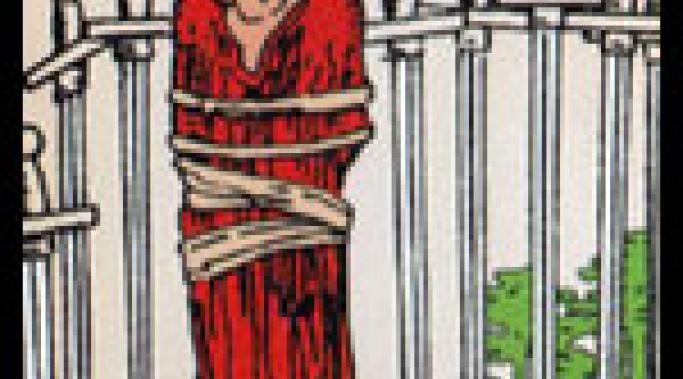Blogs
Panic attacks suck the reality out of us!
I talked two people down from panic attacks recently and both of them had been worrying that they had lost touch with reality. They felt totally disconnected to the world around them. In talking to them, they were so convincing. I almost believed that this episode was different. But I let go of my own fear for them. (My worry doesn't help anyone.) I quickly assessed that they were not, in fact, psychotic. They were speaking rationally and eloquently.
And I remember from my panicky days how I felt different and disconnected.
I am crazy. I am a fraud. I wanted to understand dissociative identity disorder (DID) because I wanted to understand myself. I didn't like it, though, all this multiple personalities crap that made me feel out of control. So I changed it. I made DID okay. Hard, but okay.
What do you think of when you hear the word “addict?” Do you visualize someone with a crack pipe, syringe, or bottle of pills? Or what about the perp standing in the courthouse being convicted of felony DWI?
It is a sad reality that life is full of things we don’t want to do and mentally-different or no, this is something with which we have to deal.
And it’s even sadder to know that people with bipolar disorder and other mental illnesses have a much longer list of things they don’t want to do than the average person. And, of course, ironically, the mentally ill are typically the least-equipped to deal with such things.
But beating bipolar disorder, or any mental illness, means doing what you don’t want to do, pretty much all the time.
It’s been a few weeks since the Succeed with ADHD Telesummit and my mind has finally quieted. All those tips and strategies, plus the energy and excitement of the listeners and speakers, had my brain fired up. I wanted to implement everything at once and make changes in my life right away! All those great ideas buzzing in my head, all the ‘I have to do that’, created such noise that I didn’t know where to start.
Often when there is too much, there’s no clear path on what to do and where to go. So I stepped away and focused on other projects. Then last week, I downloaded the recordings and listened to each of the calls again with the goal of choosing one or two strategies that I can do right now (with the plan of listening to the recordings again in a few months for more ideas).
Here are some of the key points and “ahas” I plan to add in my life right now:
What a silly title, right? After we reach adult maturity--hopefully before--we understand that the word 'normal' means very little. It is socially constructed and does not do anyone any good. But that does not mean it is not attached to our psyche, our feelings, in one way or another.
Stigma abounds when society is misinformed. Think back to the initial AIDS epidemic. The tuberculosis pandemic. And even the current societal view of addiction as a personal and moral failure.
Stigma begins with misinformation, and spreads with a complacent disinterest in the truth. Therefore, the more people know about mental illness, in theory, the less stigma there should be.
Some of you are reading this to receive validation that there is no way possible to leave your abusive relationship. If you're looking for someone else to agree and say, "Why by God, you're right! You are stuck!" then you are a victim and you are absolutely correct.
Does that help? Do you feel any better hearing me say that your situation is hopeless? There's no hope - your abuser wins. Go sit over there, sigh, and wait for the next episode of abuse. Feeling better yet?
If there’s one thing to remember about psychiatric (psych) meds it’s that you need to take them and you need to take them on time. This is because medication puts chemicals into your bloodstream and in order to keep a consistent level of these chemicals in your bloodstream, you must take the drug as prescribed. This is particularly critical in bipolar disorder as it’s easy to become unstable with an uneven level of psych med in your blood.
But we’re all human. We all mess up and forget things and we all miss a dose from time to time. So how do you handle missing a dose of a psych med?
Answer: a lot.
At least, given the opportunity, respect and resources, we can learn. So can anyone who loves someone with a mental illness.
Last week I had what I thought was a terrific idea: why not get a parent's perspective on the recent tragedy in Aurora, the public perception of schizophrenia, and the value of treatment for mental illness? After all, family members live the experience of seeing a loved one's decline into mental illness, and (if we are informed, supported, and -let's face it - a little bit lucky) the benefits of proper treatment.
Schizophrenia expert? Not just an M.D.








![MP900337265[1]](/sites/default/files/styles/blog_listing/public/uploads/2012/08/MP9003372651.jpg?itok=Q8RFhXjw)
